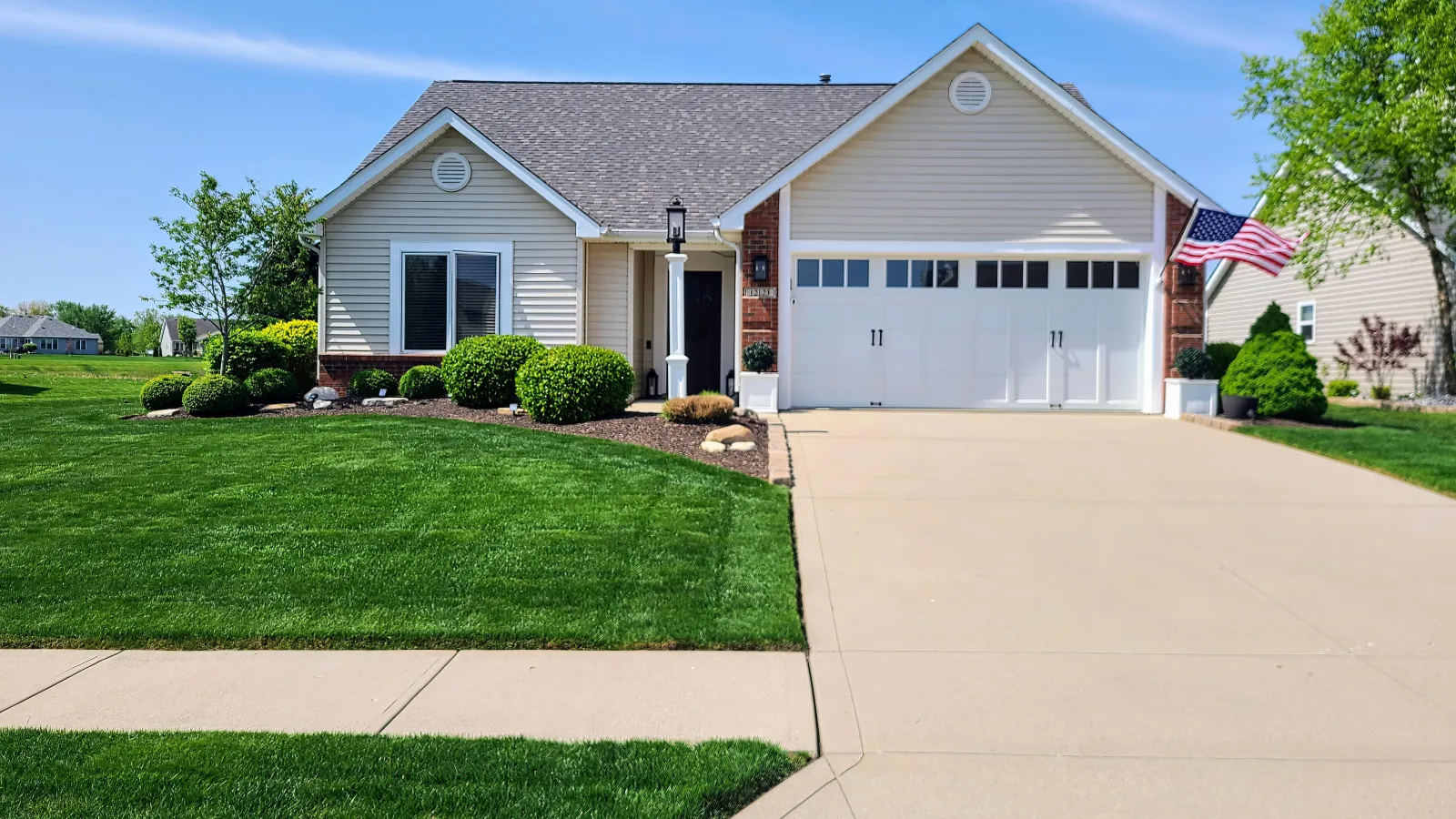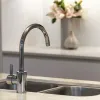If you live in a newer home, you might not worry too much about sewer line problems. But should you?
When we think about sewer line problems, we tend to associate them with older homes-not homes built within the last 30 to 40 years.
Older homes have sewer line issues, we reason, because builders in days of yore used inferior piping materials that are prone to damage. That, plus older properties tend to have a lot of big trees. And we all know that tree roots can destroy sewer lines.
While both of those things are true, it doesn't mean that new homes are immune to sewer line problems. Ask any sewer and drain plumber in Atlanta whether they work on sewer lines on newer properties, and you'll be greeted with lots of nodding heads and knowing smiles.
Why newer homes have fewer sewer line problems
Before going any further, let's first acknowledge that newer homes are somewhat less prone to sewer line problems when compared to older properties.
The main reason? Builders and plumbing contractors have been using PVC pipes for sewer lines since at least the 1970s.
PVC is a non-corroding material that's less likely to crack or collapse with age. Also, PVC pipe joints are glued together, which reduces the likelihood of tree root intrusion into sewer lines.
That being said, even PVC pipes aren't invincible.
They can still become damaged. If the joints aren't properly connected, primed, glued, they can fail. With the right combination of food scraps and other debris, you can also clog them up.
Let's take a look at some of the most common sewer line problems in newer homes.
1. Clogs from food or waste materials
Many sewer line problems, whether in newer homes or older ones, occur because something went down the drain that shouldn't have.
Actually, scratch that. This happens because some things went down the drain that shouldn't have. It's when folks get in the habit of flushing stuff that clogs their pipes or misusing their garbage disposal that clogs occur.
By the time the drain gets clogged, there's often a giant mass of material that's blocking the flow of wastewater.
We've written a whole blog about things that should never go down the drain. Here's the basic list of things that can clog your pipes:
- Cooking grease: The oils harden inside your pipes and cause blockages.
- "Flushable" wipes: You really shouldn't flush these, regardless of what the packaging says. These things were basically made to clog sewer lines.
- Large food remnants: Potato skins and fruit peels are the biggest offenders here. Even garbage disposals aren't really made to chop these up enough for them to go down the drain. Compost them or throw them away.
- Certain smaller, but inappropriate, food scraps: Coffee grounds, eggshells, and onion skins will frequently clog sewer lines. Just remember not to put anything down your garbage disposal unless it's really small and really soft (so that it's easily pulverized to bits).
Just remember that if you wouldn't put it down the drain in the absence of a garbage disposal, it probably shouldn't go in the garbage disposal either.
Garbage disposals should be considered an extra line of defense against sewer line clogs in addition to your basic sink strainer. They're not a license to throw anything and everything down the drain.
2. Deformed PVC pipes
Over time, even PVC pipes can warp or become deformed. We see this more often on properties that are still "new" relative to other housing stock but not exactly brand-spanking new. Think houses built in the late 70s through early 90s.
This is most often caused by lines that aren't bedded correctly in the constantly settling and shifting ground. As the years go by-and the soils move due to rainy and dry spells-pipes can bend or twist.
What usually happens is a bend or turn in the pipe can create an area where debris collects and forms a clog. The pipe might also develop a belly or sagging area where wastewater pools or material accumulates.
If this is happening, you'll usually notice one or more of the common signs and symptoms of a sewer line clog. A sewer and drain expert can perform a sewer camera inspection to determine what the problem is-and where.
3. Collapsed PVC pipes
This is much less common than with old cast iron or Orangeburg pipes, but PVC pipes can crack and collapse over time.
As with deformed, bent, or sagging PVC pipes, the weakened areas of pipe can eventually fail. How will this problem show up? You might experience…
- Unusually lush areas in your yard: This is likely the result of a cracked pipe that is leaking sewage beneath the earth.
- Clogs in multiple drains: If you have a clog in more than one drain, there's probably a sewer line issue. It could be a clog in the line, but it might also relate to damage, such as tree root intrusion through a crack in the pipe.
- Bad smells or gurgling sounds from drains: This is a common sign of a problem deep within the sewer line.
Do PVC sewer pipes collapse often? No. But can they collapse or become damaged? Yes.
If you're concerned about an issue in your sewer line, a sewer line camera inspection can reveal exactly what's going on.
4. Rusted galvanized steel pipes
Though they were mostly phased out by the 1980s, some homes built in that period still used cast iron and galvanized steel sewer lines.
And as we all know, those materials can rust and corrode over time.
Your 1970s or 1980s home probably doesn't have galvanized steel pipe for drains or the sewer line, but it might! Corroded galvanized steel can leak just like other non-PVC pipe materials and cause serious drainage issues on your property.
If you've got a rusted out or damaged galvanized steel pipe on the wastewater side, there really isn't a good way to repair it. You'll need to have it replaced with PVC.
Think you have sewer line problems at your Atlanta home?
At PV Heating, Cooling & Plumbing, we're drain and sewer experts. Our team provides comprehensive services for clogged or damaged sewer lines all across Metro Atlanta.
If you think you might have a sewer line problem, give us a shout! We'll perform a free sewer camera inspection to determine exactly what's going on. From there, we can help you determine the best course of action for your plumbing system.
Give us a call at (404) 798-9672 or schedule service online today!




